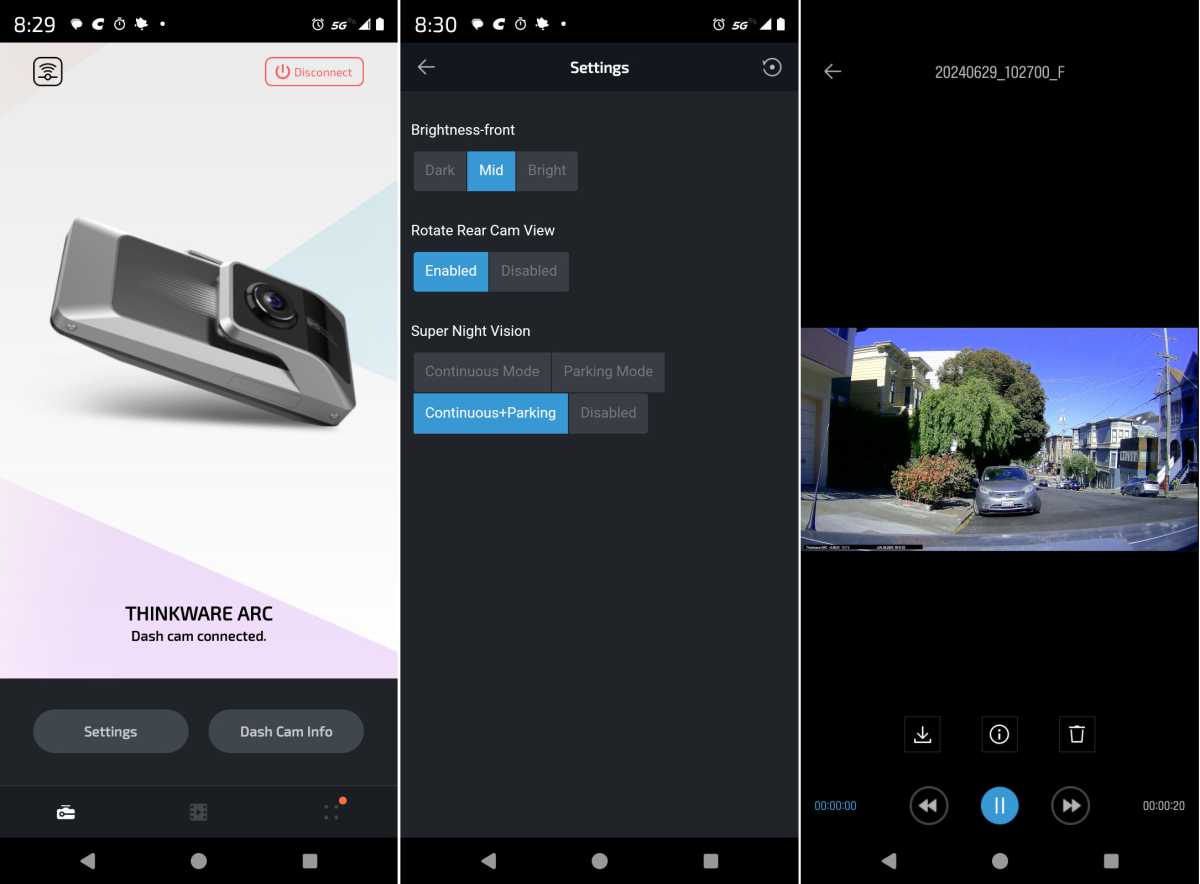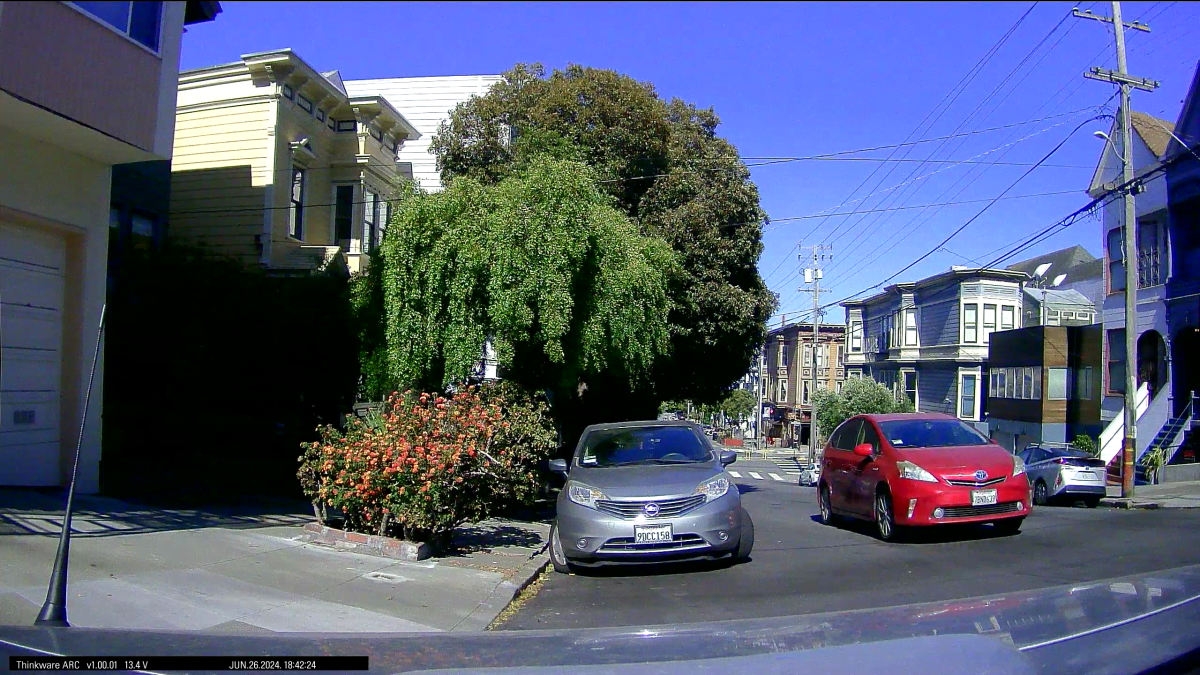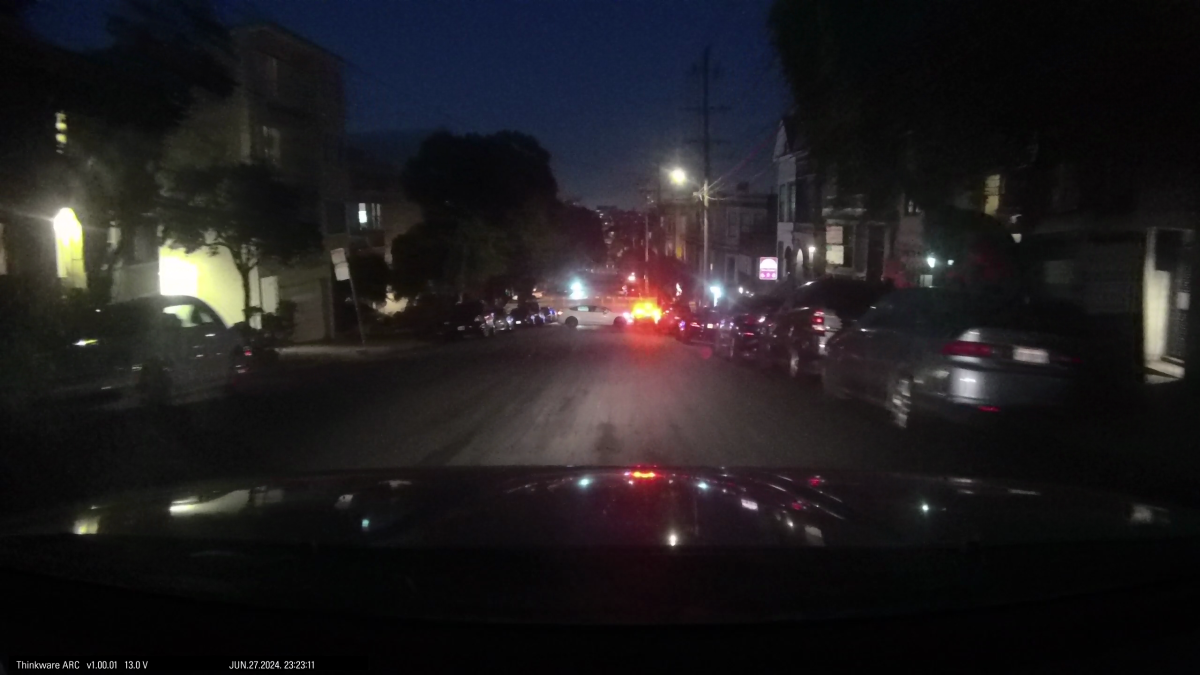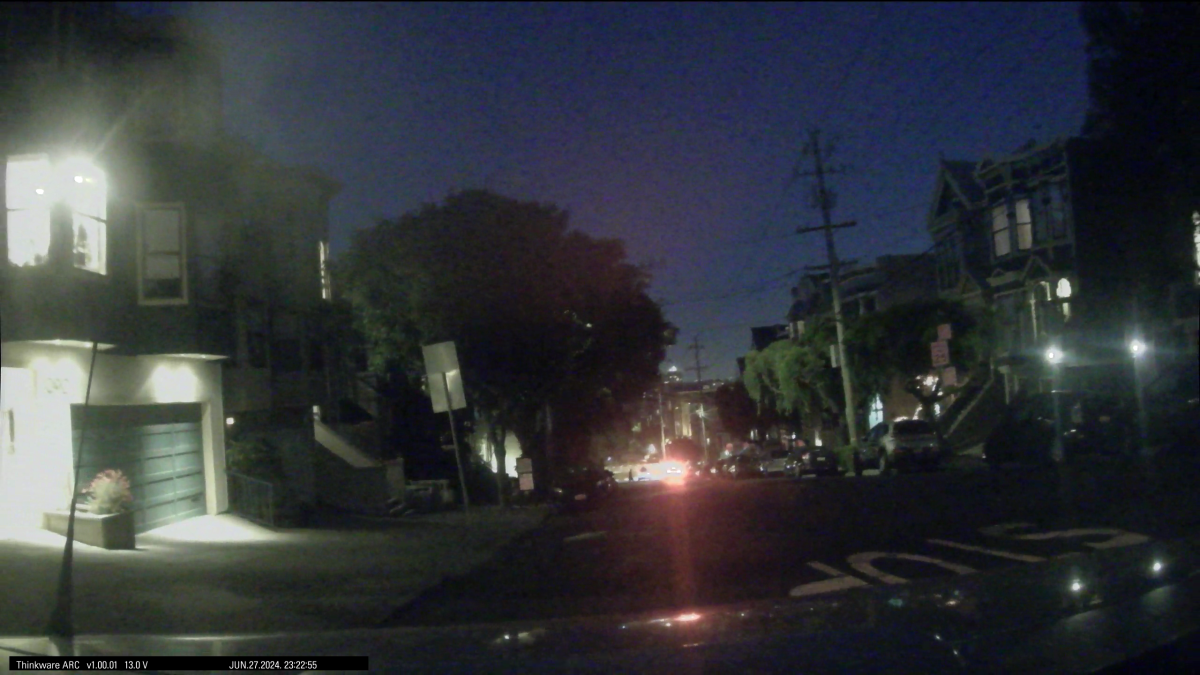Expert’s Rating
Pros
- Crisp, color touch display
- Excellent front/rear 1440p day captures
- GPS
- Phone connectivity
Cons
- Poor night captures
- External GPS makes for a bit of cable clutter
Our Verdict
The Thinkware Arc is a great daytime dash cam with some of the best 1440 front/rear captures we’ve seen. We also love its touchscreen operation, but capture quality tanks at night.
Price When Reviewed
$219.99
Best Prices Today: Thinkware Arc dash cam
$219.99
It’s been a long time since Thinkware sent me a dash cam with an onboard display. That the Arc display also supports touch greatly sweetens a deal that includes great front and rear day captures, as well as driver-assist features. Alas, night captures are weak at best, which surprised me given the top-notch sunlit captures.
What are the Arc dash cam’s features?
The Arc is a two-channel (front/rear) dash cam system with both cameras capable of 1440p at 30 frames per second. Both also offer the same 125 degree field of view, though the sensor for the front unit is an Omnivision OS04C20 and the rear is an SOI K302P.
The 2.7-inch (diagonal) color touch display means you don’t have to grab your phone to see what’s happening or to adjust settings. My fingers are highly callused but the screen responded easily and features a calibration routine should it start misbehaving.
Further reading: See our roundup of the best dash cams to learn about competing products.
The Arc provides GPS, but it’s by way of an external puck. Which brings me to a minor complaint, which is the cable clutter. Not only for the GPS, but the power and rear camera. Yes, it’s only one more wire than normal, but it’s a bit more difficult to route.
As for the cables, the rear camera cable has a 3.5mm TRRS connector on the main camera end and Micro-B USB on the rear camera end. The GPS is also TRRS on the main camera end, but captive on the GPS unit itself.
The power cord is fixed auxiliary on one end and coaxial on the camera end. The jacks are all on the top of the camera, and the power cable must be removed before you can slide the camera off its mount.
If you’re the strictly diurnal type, you’ll be hard-pressed to find anything better than the Arc.
The mount is a semi-permanent adhesive type which rotates only forward and back. Turn the camera on and look at the view before you affix it permanently (semi!) to your windshield.

As the display responds to touch, the only physical control on the camera is an on/off button on the left side. And although there’s a display on board, you can still use the Thinkware app to change settings, or view previous captures. I did not, however, discover a live view that is offered by so many of Thinkware’s dash cams. There’s the display of course, but still…
This being Thinkware, of course there are driver alert features (the company was first to test the water with these), issuing warnings when, say, the vehicle in front of you departs and the traffic light changes. However, unusually for the company, there are no lane departure or impending collision warnings.
There are voice alerts, but no voice commands. This kind of thing was a hallmark of Thinkware cams previously, so I’m not sure why the lack. The display should be an add, not a replacement.
A parking mode is provided and you can even set the voltage sensor to turn off at a specified low voltage. Dash cams in parking mode do use juice, and the majority will turn off rather than run your battery dangerously low.
How much does the Thinkware Arc cost?
While the Thinkware Arc front and rear combo (we found no SKU for the front camera alone) has a list price of $280 on the company site, it’s currently marked down to $220 here and on Amazon, at the time of this writing. Obviously, I like the lower price. But I also feel it’s a bit closer to the camera systems true value.
How is the quality of the Arc dash cam’s captures?
The Thinkware Arc takes fantastic front and rear video during the day, but the quality falls off drastically at night. To the point where I’d say grab something else if you do a lot of night driving.
But if you’re the strictly diurnal type, you’ll be hard-pressed to find anything better than the Arc. As you can see below, both color and detail are found in abundance.

The rear capture below is absolutely one of the best I’ve seen. That it’s 1440p helps, but you don’t get a capture this nice without first-rate optics and processing.

Sadly, things weren’t so wonderful at night and it was very surprising. The front capture below is blurry and detail is lacking. Headlight flare isn’t handled particularly well either. Keep in mind that this is the same clean windshield only a few hours after the day captures.

The rear captures are even worse. Granted, these are almost 20-year old windows, but again, this is the same state of cleanliness that delivered the outstanding rear day capture.

The Thinkware Arc does offers a “super night vision” feature that can offers some improvement in detail. However, it’s not turned on by default and I test with the defaults settings as that’s what most users will wind up using.
As I said before, for daytime use the Arc rocks. But captures are passable at best when the light fades.
Should you buy the Thinkware Arc dash cam?
If you primarily drive during the day, the Arc is a fantastic front/rear combo. But the night captures are surprisingly weak, so I’m labeling it day-use only. Buy accordingly.


